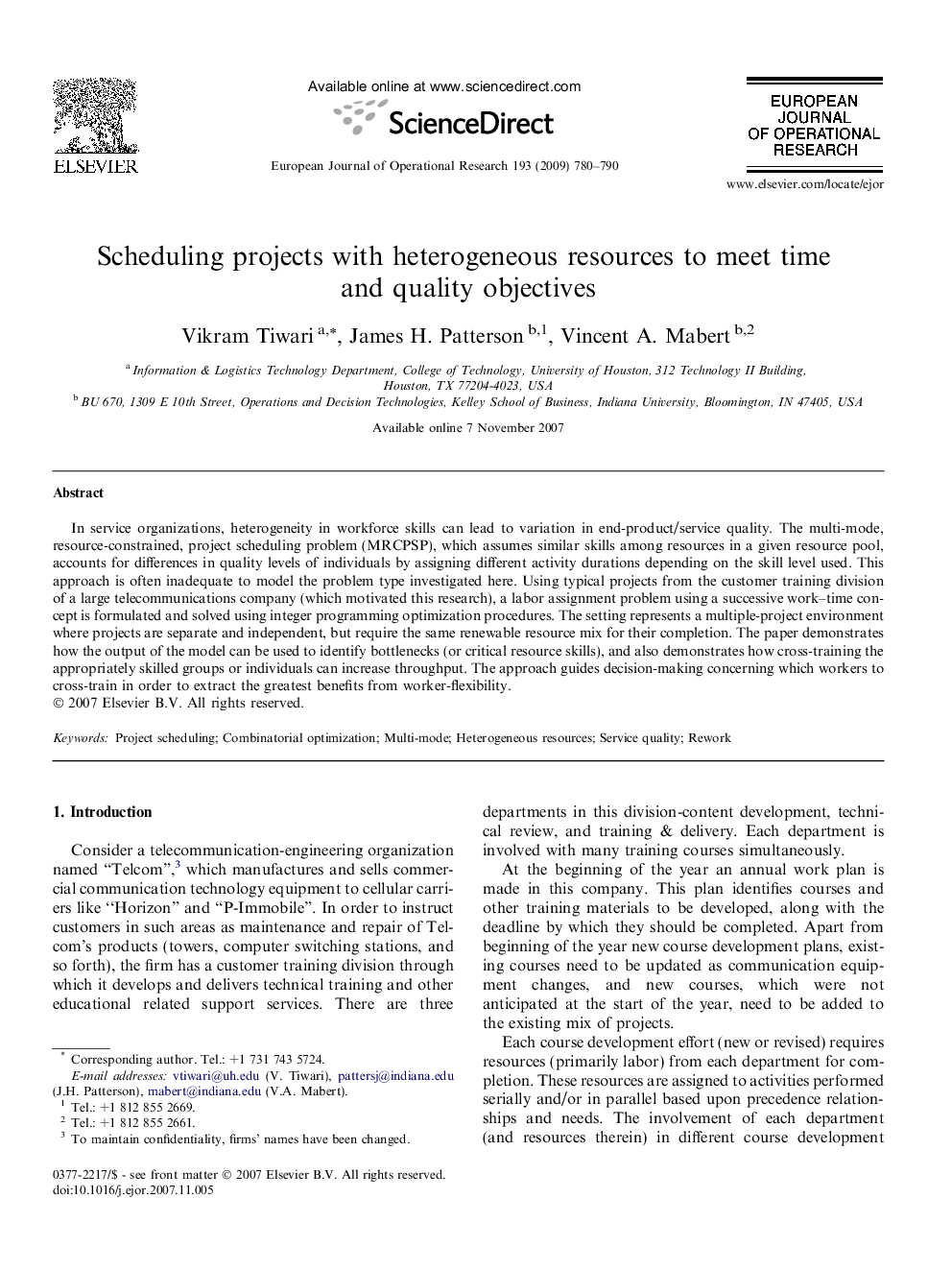| Article ID | Journal | Published Year | Pages | File Type |
|---|---|---|---|---|
| 481014 | European Journal of Operational Research | 2009 | 11 Pages |
In service organizations, heterogeneity in workforce skills can lead to variation in end-product/service quality. The multi-mode, resource-constrained, project scheduling problem (MRCPSP), which assumes similar skills among resources in a given resource pool, accounts for differences in quality levels of individuals by assigning different activity durations depending on the skill level used. This approach is often inadequate to model the problem type investigated here. Using typical projects from the customer training division of a large telecommunications company (which motivated this research), a labor assignment problem using a successive work–time concept is formulated and solved using integer programming optimization procedures. The setting represents a multiple-project environment where projects are separate and independent, but require the same renewable resource mix for their completion. The paper demonstrates how the output of the model can be used to identify bottlenecks (or critical resource skills), and also demonstrates how cross-training the appropriately skilled groups or individuals can increase throughput. The approach guides decision-making concerning which workers to cross-train in order to extract the greatest benefits from worker-flexibility.
